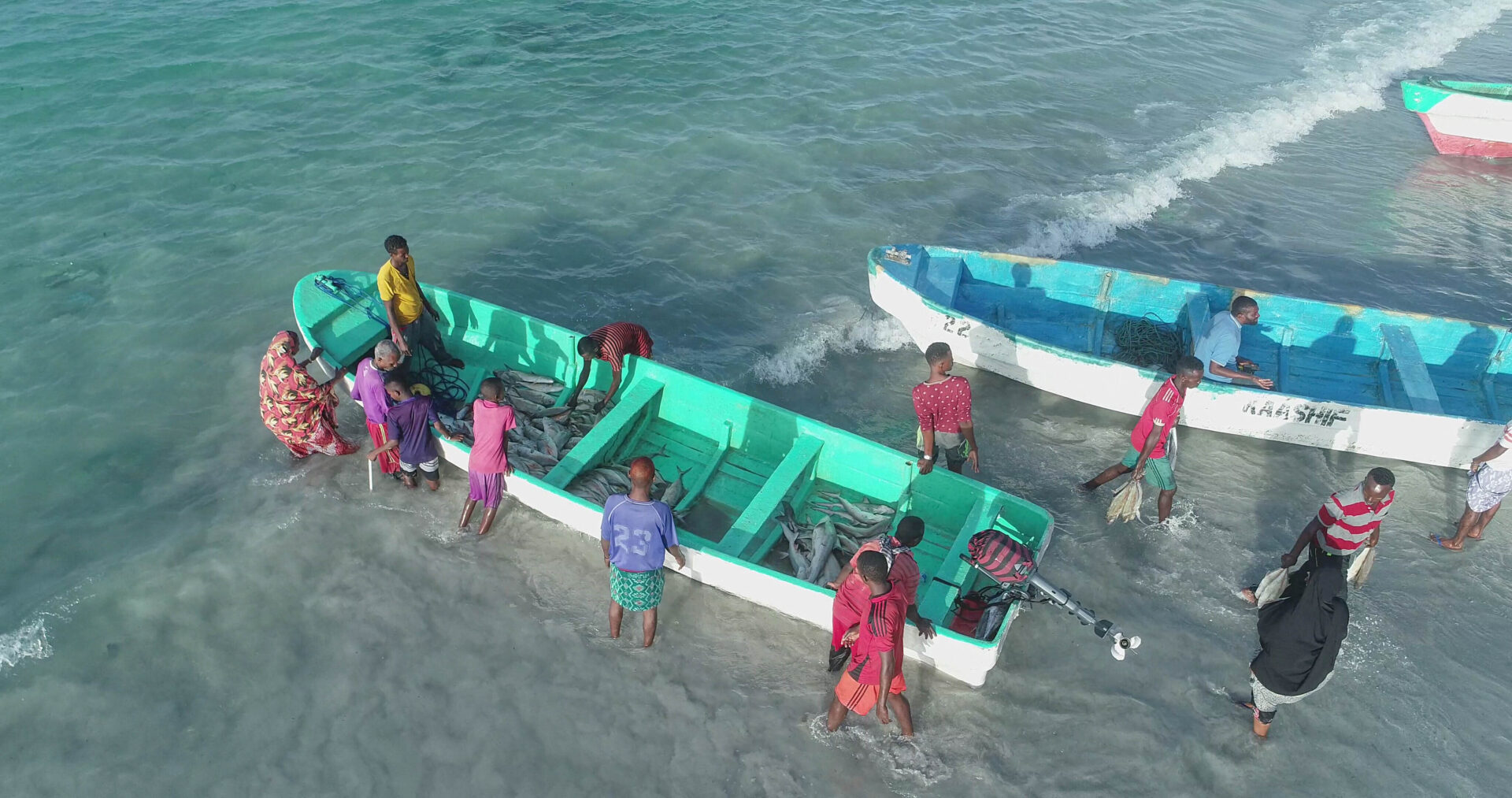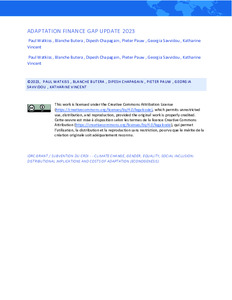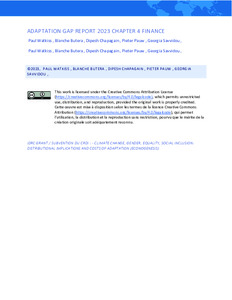
Gender equality and inclusion: Distribution and costs of adaptation (ECONOGENESIS)
Introduction
The impacts of climate change will not be felt evenly around the world or across society. It will disproportionately affect people who face gender and other social inequalities, especially in the Global South. However, current estimates of the economic costs of climate change and the costs of adaptation do not include a breakdown of these effects. This gap in knowledge hinders national adaptation planning as well as the design of bankable adaptation projects that support gender equality and promote social inclusion. This project will conduct country-level studies in Nepal, Rwanda and Tanzania to address this gap. Working closely with key actors from government, private sector and civil society, this inter-disciplinary project will update previous studies on the economic costs of climate change and the costs of adaptation, and extend these to include gender, equality and social inclusion (GESI) dimensions. It will also advance gender-positive and inclusive programming for adaptation finance. The project will strengthen the capacity to integrate GESI dimensions in adaptation planning and programming by generating new information, working directly with stakeholders using co-creation methods, and providing training opportunities, including for early career researchers.
Context
Climate change will have a disproportionate impact on the poor, women, girls and on marginalized populations (people with disabilities, ethnic minorities, indigenous people, and the elderly). However, current studies of the economic costs of climate change, and analysis of the costs and benefits of adaptation, do not consider the split by gender and across different social groups. Similarly, while there are increasing finance flows for adaptation, there has been less research on how to enhance GESI programming. This project addresses these knowledge gaps focusing on Rwanda, Nepal, and Tanzania. There is strong interest by governments in all three countries to update previous economic studies to support adaptation planning and to extend these to explicitly consider the impacts of climate change on women, the poorest and socially excluded groups. The research will provide timely new information on the economic case for adaptation and ensure strong integration of GESI dimensions. In Rwanda, it will also investigate new financing models with the national climate fund, including blended and private sector models, and help to co-develop investment-ready (bankable) adaptation projects that promote gender equality and social inclusion.
Approach and Methods
The project aims to support climate resilient economic planning in Rwanda, Nepal and Tanzania (with a specific focus on Zanzibar), through the analysis of adaptation costs and financing, and to inform the development of a pipeline of bankable adaptation projects.
The research has two main components:
First, building on previous analysis conducted by the team, the team will assess the economic costs of climate change, and the costs and benefits of adaptation, in the three countries. This will include an analysis of the differential impacts, by gender, social identity and income. The study will work at three aggregation levels. It will undertake detailed local vulnerability studies, using surveys and interviews to understand GESI elements. These results will be fed into sector impact models that look at impacts and adaptation (e.g. flood models). Finally, this information will be fed into a top-down analysis, to provide economy-wide assessment. The analysis will use a policy-first approach and look at climate change issues within the context of existing and forthcoming country-specific development plans.
Second, the project will review the barriers that hinder the creation of adaptation projects. It will identify and help develop new financial instruments and business models that can address these barriers, supporting a pipeline of bankable projects, especially those that promote GESI considerations or are GESI targeted. This will focus on Rwanda, extracting lessons for the other countries.
An innovation of this research is the extension of traditional economic analysis to consider GESI and distributional effects, considered a key priority by external reviewers. The research will use a co-creation framework to ensure it produces usable and policy relevant knowledge. This will start with co-design, to jointly develop and define research questions that meet interests and needs of stakeholders. It will also work with relevant stakeholders as the project progresses, and includes capacity training workshops for government, civil society stakeholders, private sector and climate fund managers. The project aims to amplify impact within and beyond the national level through strategic knowledge generation, including dissemination of country-focused reports, collaborative case studies, and policy briefs. The project is also contributing to the Adaptation Finance Gap chapter of the 2023 United Nations Environment Programme Adaptation Gap report, developing new estimates of global adaptation costs and undertaking a GESI analysis.
Expected Results
The project will deliver a mix of tailored and diverse outputs, including reports, policy briefs, a chapter for the United Nations Environment Programme Adaptation Gap Report, and at least one peer-reviewed publication. All outputs will be open-access. An initial pipeline of ten adaptation projects, at least half of which will have a GESI focus, will be co-developed for Rwanda’s NDC facility and Green Investment Facility.
Working in collaboration with Southern researchers and key actors, the project will strengthen capacity of three early career researchers (one in each country), and also strengthen the knowledge and capacity of development planners, economists, climate fund /climate finance staff, civil society and private sector partners in Rwanda, Nepal and Zanzibar through workshops and trainings.
Photo Credit: International Committee for the Development of Peoples
Lead organizations
Partners
Contacts



